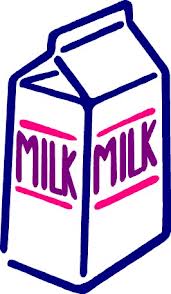By Richard Holliday, DVM
There is an ongoing – sometimes heated – discussion going on nationwide regarding the pros and cons of raw milk consumption. On one hand the establishment cites the down side, while the proponents cite the health benefits.
establishment cites the down side, while the proponents cite the health benefits.
Many people that regularly consume raw milk claim improved taste and the presence of beneficial gut bacteria. Raw milk contains the full spectrum of amino acids and is a complete protein. It is packed with folic acid, B vitamins, vitamin C, omega-3 fatty acids and other nutrients that are mostly or completely destroyed in pasteurization. Raw milk also contains live enzymes necessary for digesting food and enjoying good health. Pasteurization breaks down lactase, an enzyme that helps digest the milk-sugar lactose, meaning that lactose-intolerant individuals can drink raw milk but not pasteurized milk. This process also renders calcium more difficult for the body to absorb. Another advantage for some people is that drinking raw milk supports local farmers.
A study published in The Internet Journal of Asthma, Allergy and Immunology found that raw milk reduced children’s risk of suffering allergy-related conditions by up to 40 percent.
The Weston A. Price Foundation has long been a proponent of raw milk. The organization claims that of 15 milk-borne disease outbreaks cited by the FDA, not a single one demonstrated that pasteurization would have fixed the problem, that 93% lacked either a valid statistical correlation with raw milk or a positive sample, and half lacked both; they further claimed that, even with the FDA’s numbers, raw milk was no more dangerous than deli meats. In response, the director of the FDA’s division of plant- and dairy-food safety, John Sheehan, called the organization’s claims on the health benefits and safety of raw milk "false, devoid of scientific support, and misleading to consumers."
It is true that some folks have become sick after drinking raw milk. According to the Centers for Disease Control and Prevention, more than 800 people in the United States have gotten sick from drinking raw milk or eating cheese made from raw milk since 1998. From 2000-2008, 50 disease outbreaks in the U.S. were attributed to the consumption of raw milk. Those affected were primarily pregnant women, children, the elderly, and people with weakened immune systems. Recently the CDC was forced to reclassify the cause of 2 deaths from raw milk to the consumption of a particular type of cheese that is currently banned under FDA regulations.
To put the above deaths into perspective, statistics gathered a few years ago cited 9,000 deaths annually from unspecified food poisoning, 60,000 to 140,000 deaths from adverse pharmaceutical drug reactions and 0 deaths from vitamins or commercial herb products.
It would seem that if a person with HIV drinks some raw milk and subsequently passes away the death is listed as caused by raw milk and not from the original virus infection.
The above is a typical example of the dilemma regarding what makes "science" good or bad. It would seem that "good science" is currently considered to be science that is politically correct and supports profits for an outmoded industrial/political/university complex. Conversely centuries old common sense observation and an understanding of what really goes on in our biosphere is relegated to being "bad science" at best and "pure crap" at worst. Go figure!
BOTTOM LINE:
Each person must decide to drink or not to drink raw milk. I personally have no qualms about drinking raw milk when I know the dairyman and have assessed the cleanliness of the dairy farm and the health of the cows.
